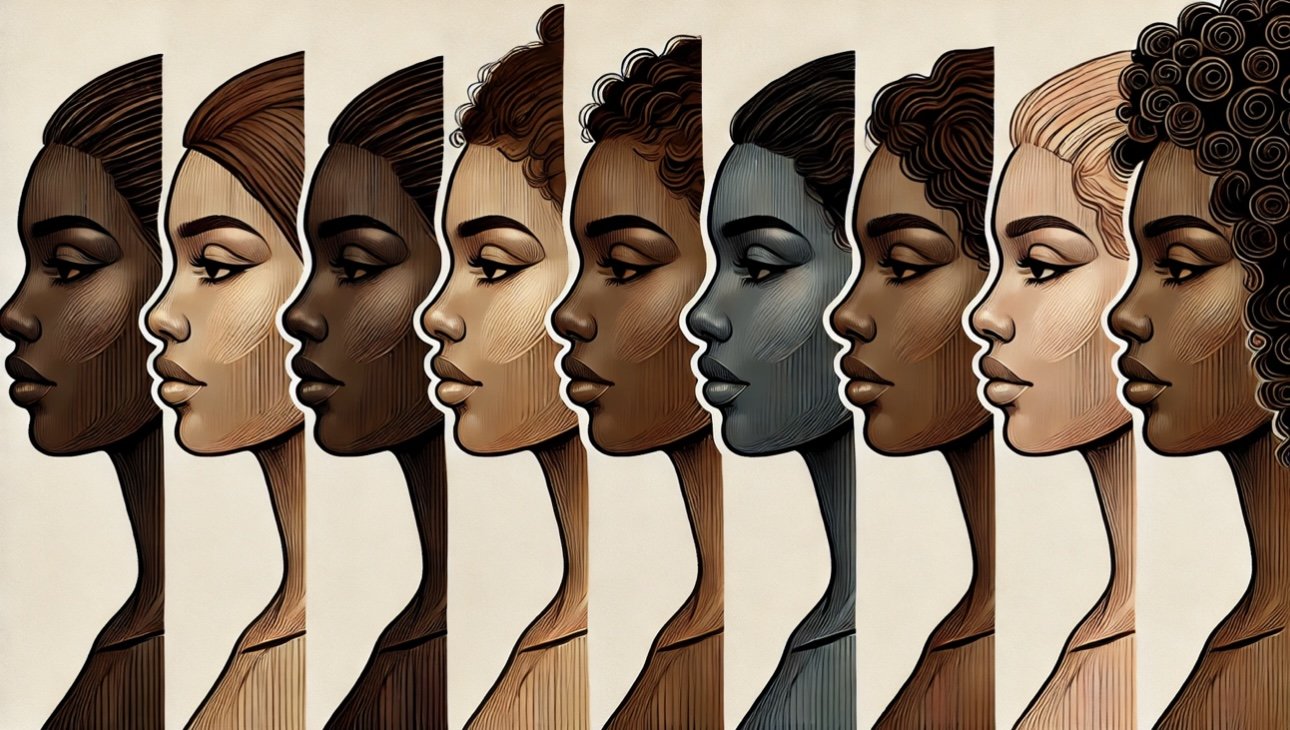Healing from Within: Confronting Internalized Racism, Colorism, and Patriarchal Mindsets in Black Women
With the advancement of social media, the voices of Black women are louder and more influential than ever. We have created spaces where we can share our stories, celebrate our culture, and support one another. However, these platforms have also become arenas where internalized racism, colorism, and patriarchal mindsets are displayed and perpetuated.
Creators make statements about being superior due to their lighter skin tone, while others tear down cooking stations or accuse people of theft based on their proximity to whiteness. Biracial or mixed individuals are often scrutinized and told they’re not Black enough. Social media has become a place where trauma spills over into the audience, perpetuating harmful stereotypes that not only hurt us individually but also undermine our collective progress
Let’s talk about it.
To dismantle these harmful practices, we must start with ourselves. Inner work means taking a deep, honest look at our own beliefs and behaviors. It means recognizing the ways we may have internalized these harmful stereotypes and taking active steps to change them.
1. Self-Reflection: Begin by examining your own biases. Ask yourself tough questions about how you perceive others in the Black community and where those perceptions come from. Journaling can be a helpful tool in this process.
2. Education: Educate yourself about the history and impact of racism, colorism, and patriarchy. Understanding the roots of these issues can help you recognize them in your own thinking and in the world around you.
3. Therapy: Consider seeking therapy to address deeper issues. A professional can help you navigate the complexities of internalized oppression and provide strategies for healing.
4. Community Building: Engage in conversations with others in your community. Share your experiences and listen to theirs. Building a supportive network can provide encouragement and accountability as you work through these issues.
5. Advocacy: Use your voice to advocate for change. Challenge stereotypes and discriminatory behaviors when you see them. Support initiatives that promote inclusivity and equity within the Black community.
6. Be Responsible with the Content You Consume: Be mindful of the media and content you engage with. Avoid consuming content that perpetuates negative stereotypes or drama. Instead, seek out positive, uplifting content that promotes growth and healing.
7. Stop Trying to Save People with Problems: It's important to recognize when someone’s issues are beyond your ability to help. Before investing your time, energy, or finances into someone who is crying out for help, investigate the situation more thoroughly. Question why they lack a support system and consider if your involvement might hinder your own healing process.
8. Avoid Trauma Bonding: Seek out content creators and environments that encourage you to show up as your best self, rather than ones that pull you into a cycle of trying to save others. Surround yourself with people who speak positively about others and steer clear of spaces filled with drama and trauma.
9. Prioritize Your Healing: If you’re trying to heal from trauma, it’s crucial to move forward constructively. Avoid engaging with content that retraumatizes you, such as videos discussing domestic violence. Focus on therapy and discussions that promote your well-being and recovery.
The journey towards healing and growth is not easy, but it is necessary. As we confront internalized racism, colorism, and patriarchal mindsets within ourselves, we also empower our community to rise above these harmful practices. By doing the inner work, we not only improve our own lives but also contribute to a stronger, more unified community.
Let's commit to looking in the mirror and doing the work. Let's educate ourselves, seek therapy, and support one another. Together, we can dismantle these harmful stereotypes and build a future where every Black woman is celebrated for who she truly is.

